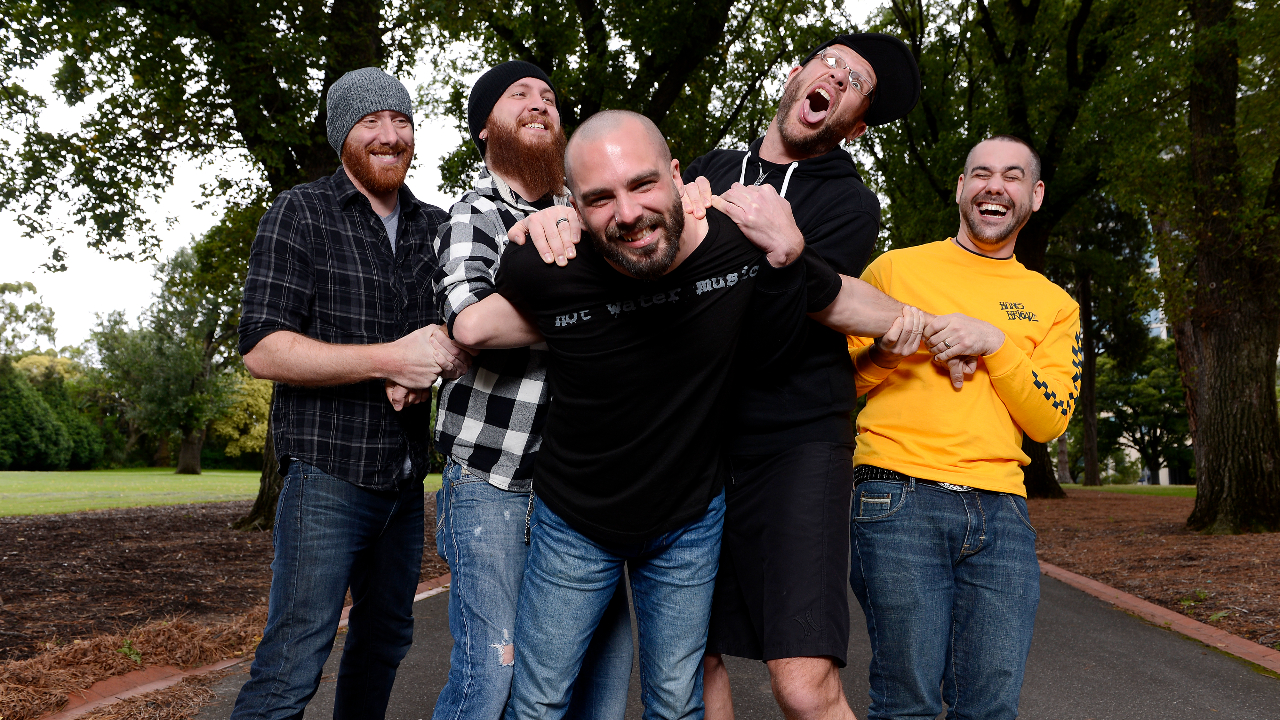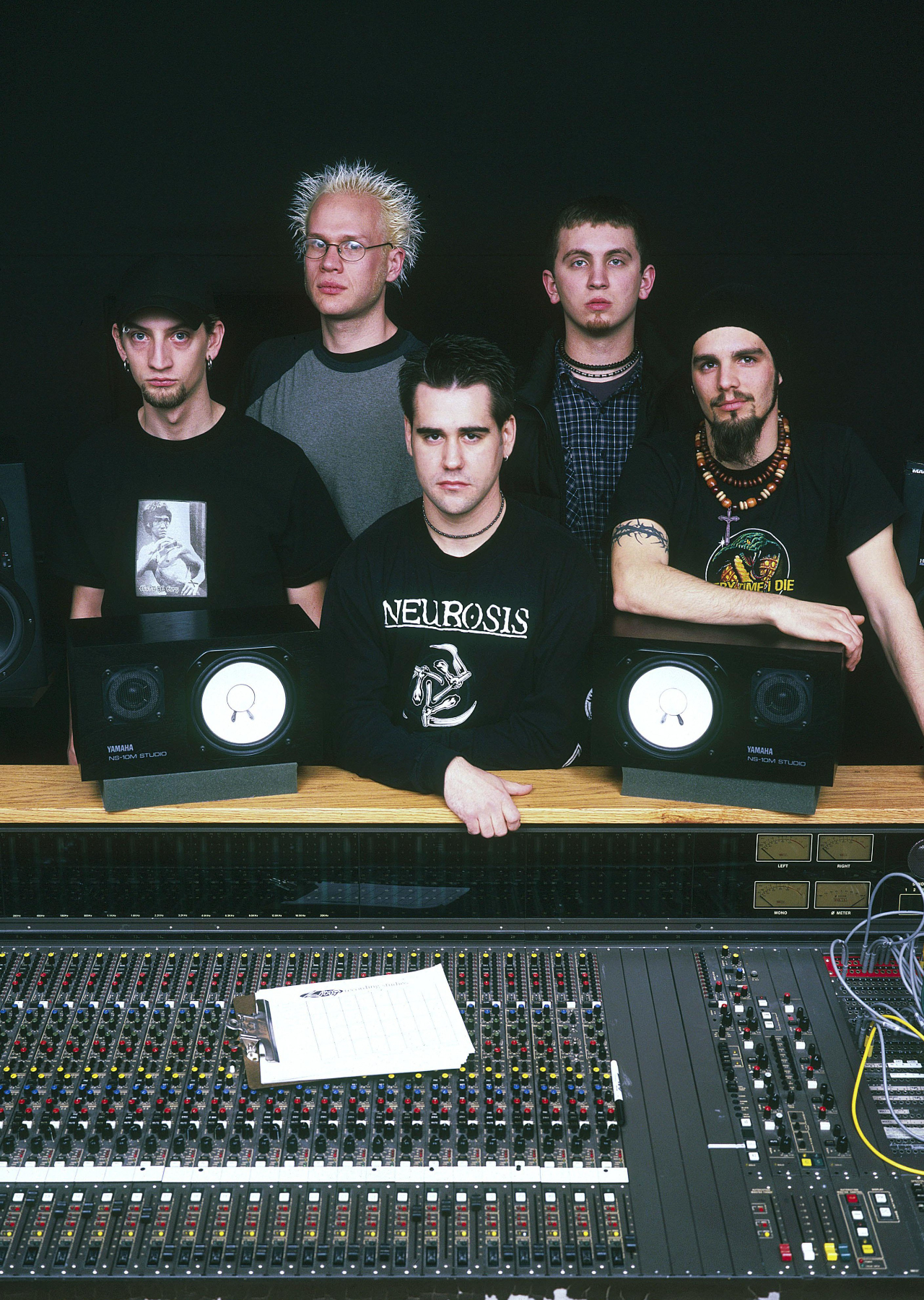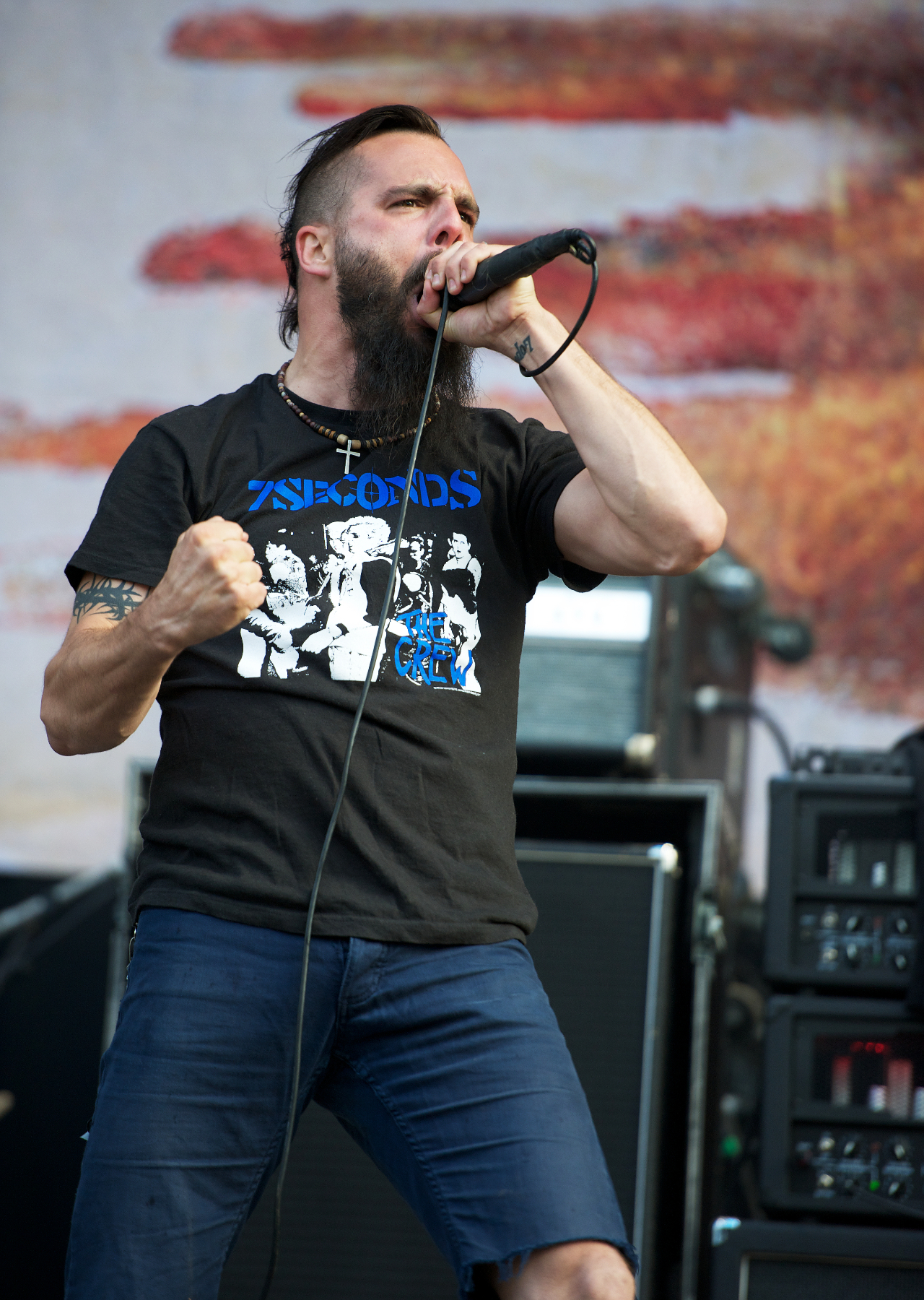"I went from touring to working behind a bar in Manhattan, busting my butt to pay bills." How one of metal's most beloved bands reunited with an old friend to get a much-needed new lease of life
These metalcore legends faced an uncertain future following the exit of their much-loved frontman, but all was not lost

By 2012, Killswitch Engage were facing an uncertain future. The Massachusetts quintet had released two era-defining records – 2002’s stratospheric breakthrough Alive Or Just Breathing, recorded with original singer Jesse Leach, and 2004’s The End Of Heartache, with replacement vocalist Howard Jones – that had cemented their position as one of metalcore’s biggest bands.
But by the end of the decade, a lukewarm response to patchy late-00s material hinted at faltering momentum, and on January 4, 2012, the metal world was shocked when Howard announced his departure, citing health concerns.
Killswitch’s sixth album, Disarm The Descent, was born out of that period of uncertainty. The record that saved the band’s career and kickstarted their next era, it saw them welcome ex-vocalist Jesse back to the fold and reboot their blend of sky-scraping melodies, punk grit and savage thrash.
A colossal return to form against nail- biting stakes, the Metal Hammer review at the time of its release said it “could be regarded as the most important album that the Massachusetts quintet have ever made”.
I will agree that it was the most important album we made
Adam D
“I will agree with that”, nods guitarist Adam Dutkiewicz today, considering the record’s place in the KSE back catalogue. “It really was a statement that we’re not going away. Sorry! We’re still going to keep going and do what we do.”
For Jesse, the album was proof that there was such a thing as a second chance. The singer, who’d been fighting severe depression when he quit Killswitch in 2002, had spent a decade working a string of various jobs – he was a bartender, a paralegal, a bakery assistant and a woodcutter. In that period, he’d dipped his toe in and out of music, forming groove-rock band Seemless, followed by hardcore/ metalcore hybrid The Empire Shall Fall. But it was collaborating with Adam on metal side-project Times Of Grace in 2011 that made him realise how much he missed making music his focus.
“I went from touring with Times Of Grace to working behind a bar in Manhattan”, he says. “Going back to the working class, busting my butt to pay bills, résumé in hand, walking into bars and just needing a job. I had gone from the heights of, ‘Wow, I’m back in a band’ to, ‘It’s all over. It’s gone and there’s no chance of it picking up again anytime soon.’”
Sign up below to get the latest from Metal Hammer, plus exclusive special offers, direct to your inbox!
That period was one of the most frustrating, humbling times of Jesse’s life, but it would inspire one of Killswitch’s most enduring anthems. Disarm The Descent’s killer lead single In Due Time, which includes the lyric ‘All in due time, see the world through different eyes. The shadows will give way to light’, is an inspirational reminder never to give up on your dreams.
“I had a bunch of poetic catchphrases written down, and one of them was,
In due time’, a phrase that has been reoccurring throughout my life”, explains Jesse. “And it seemed appropriate. I would have never imagined I’d be revisiting this and having a second chance on a much, much bigger level this time around.”
Today, Jesse’s return to Killswitch seems like the most natural thing in world, but believe it or not, the vocalist wasn’t the obvious choice at the time. Initially assuming he wouldn’t want to sing lyrics that had been written by Howard, the band put out an open invitation on Facebook for people to audition. Meanwhile, Jesse too was cautious about the idea of jumping back in with both feet.

“I went up to have a meeting with them to discuss maybe just doing an Alive Or Just Breathing reunion tour, which was shot down”, he remembers. “They were like, ‘Oh, we like that idea, but we really want to carry on with our career and we can’t just ditch the legacy of what we’ve done from The End of Heartache to As Daylight Dies to the second self-titled.’”
Jesse left the meeting and slept on it, before contacting the band’s management the next day and throwing his hat in the ring to audition. Within two weeks of getting the gig, he was back out on the road with the band, heading to Europe, where he found himself playing the largest shows of his life.
“The beautiful chaos of my life began at that point”, he says, remembering that the pressure was immediate and immense. “When I left Killswitch, we were a baby band. I came back to this behemoth. But I was having too much fun to even recognise it. The first year of me rejoining that band was a blur of beer and metal and travelling and just having a blast with my friends.”

The band had written the music that would eventually become Disarm The Descent in the interim period between Howard leaving the band and recruiting their new singer. Wanting a complete change of tone and pace from 2009’s leaden self-titled effort, which they’d recorded with producer Brendan O’Brien (Pearl Jam, AC/DC), Adam took back control of production, looking to reinject the “passion and spunk” that had defined their earlier music.
“Oh, God, we hate that record. We didn’t like it so much we didn’t even name it”, laughs Adam. “To be honest, a lot of it had to do with Howard’s disconnect...there was just a lot of internal conflict going on at that point.”
After Jesse wrote his lyrics on the road, the band decamped to Adam’s home studio, where the album was recorded. It’s the sound of a band revitalised, with a renewed energy and camaraderie seeping into the tracks. Even in demo form, In Due Time stood out as one of the record’s most promising cuts.
“It’s one that just kind of poured out of me,” Adam remembers. “That’s normally how our best songs have come together. It started with that first riff, and I’m pretty certain that song came together probably within a couple of hours.”
Deep down inside, I was battling insecurities
Jesse Leach
“It felt like it was almost a sequel in so many ways to what I had done with Alive Or Just Breathing”, says Jesse. Immediately, the song established Jesse’s Dylan-esque raw and candid style of songwriting, as well as advocating for the power of positive mental attitude, two characteristics that have defined Killswitch’s music ever since.
“What struck me about it when I first heard it was the difference between the chorus being uplifting and triumphant, and the verses being more hardcore. Message-wise, it’s aggressive, but it feels light and positive.”
An obvious choice to introduce fans to the band’s next era, In Due Time was chosen as the album’s lead single. Although for the millions of metalheads who had got into the band with The End Of Heartache, Howard remained the quintessential Killswitch singer, something Jesse was painfully aware of.
“Deep down inside, I was battling insecurities because, to this day, you can’t compare Howard and I, we’re very different singers”, he says.“He’s got this big, beautiful, smooth voice. I’ve got rusty screws and nails in my voice. As much as I can sing, there’s still a grittiness there that’s like... imperfect. I’ve learned to accept that.”
Although he knew it was unhealthy, he admits to reading comments on social media. “There were moments where I was pretty devastated and felt like I didn’t know if I can hack it.” “Obviously there’s Howard lovers out there who like Howard better, but that’s the way the world goes”, shrugs Adam. “I guess you can’t please everyone.”
It would take three or four years until Jesse felt completely settled and his insecurities would follow him into the recording sessions for Killswitch’s next album, 2016’s Incarnate. But these days, he’s better equipped to deal with what he calls the “peaks and valleys” of life in one of metal’s premier players.
“I definitely received a ton of sucker punches, but I think I needed it”, he says. “Now that I’m older and wiser, it’s not something that enters my mind very often anymore.”
Now, 10 years on from their release, Disarm The Descent, and particularly In Due Time, are among metal’s greatest redemption stories.
“It’s a statement of how Jesse quit the band because mentally he wasn’t ready for it, and then he got a second opportunity”, sums up Adam.“In Due Time means things can work out in your life with patience and determination.”
In 2013, the song would earn the band a Grammy nomination for Best Metal Performance. While they wouldn’t take home the award, it’s a testament to the song’s power to connect on a wider scale, and the anthem has remained in their live set ever since.
“In retrospect, it was the right time and the right place, with the right words”, concludes Jesse of the track’s legacy. “There’s a point in the song, right at the end, when the music stops and I say, ‘All in due time...’. Night after night, I put that microphone out to the crowd and I’m wondering, ‘Are they going to do it?’ And no fail, every single night they do it. So that’s how I know it still matters.”
Originally published in Metal Hammer #379
You must confirm your public display name before commenting
Please logout and then login again, you will then be prompted to enter your display name.
![Killswitch Engage - In Due Time [OFFICIAL VIDEO] - YouTube](https://img.youtube.com/vi/HANCzu70us4/maxresdefault.jpg)
